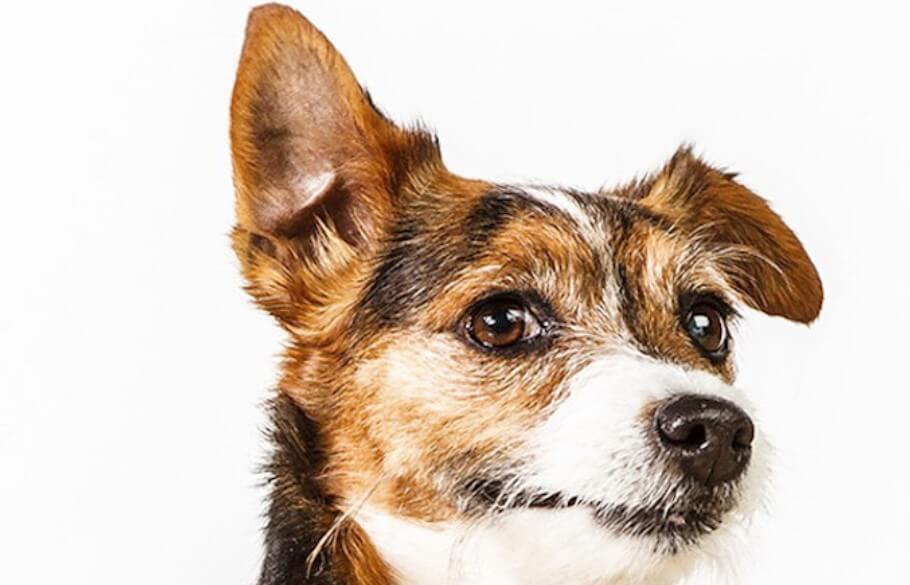There are many reasons for bad breath in dogs. In addition to internal diseases, dental problems also cause a bad smell. We reveal below which other factors lead to an unpleasant smell.
Bad Breath in Dogs
- Older animals, in particular, are often affected by the smell from the snout.
- Bad breath in dogs often occurs after barfing.
- Broken and covered teeth, as well as diseases, lead to severe exhalations from the mouth.
Dog Food as a Cause of Bad Breath

Are you worried because your companion smells out of the mouth? The reason for this can be dog food. The problem often arises when the pet is barked, i.e. given raw food. Both the meat fed and the offal can cause bad breath. These are usually still available hours after the meal.
Wet and dry food can also cause an unpleasant odor. This happens often after a feed changeover. It could also be that your darling suffers from intolerance, which manifests itself in a stink from the snout.
Dog Smells Like Putrefaction: Problems With Organs or Metabolism
In some cases, bad breath from the mouth of the fur nose has a serious background. Then there can be a disease behind it. In addition to diabetes and cancer, metabolic diseases such as thyroid problems (hypothyroidism or hyperthyroidism) can also be considered. If your darling is overweight, this also stresses the physical processes and can lead to health problems for the dog. Problems with the internal organs such as the liver, heart, stomach, or intestines are also possible causes of the stench.
Tooth Decay and Plaque: The Leading Cause of Bad Breath in Dogs
Does your dog stink of putrefaction? The most common causes of bad breath include tooth decay, a loose tooth, plaque, tooth decay, and tartar. Usually, older four-legged friends are more likely to be affected, because the dentition deteriorates over the years. Difficulties with the gums or plaque also cause exhalation. This problem occurs even with puppies. This is because the area under the baby’s teeth is susceptible to bacteria. Here you can easily tackle the problem with a soft toothbrush.
Mouth and Throat: Foreign Bodies, Eczema and Inflammation Trigger Bad Breath
Problems in the throat and mouth also lead to a smell in companions. This could be because the animal has tonsillitis, for example. At the same time, there is an increased temperature, fatigue, and reluctance to eat. If the cause is tonsillitis, a visit to the vet shouldn’t be a long time coming.
In addition to the almonds, the lips of the faithful companions sometimes become inflamed. Veterinarians also refer to this disease as lip eczema (inflammatory skin disease). This can occur because food particles build up in the fold of the lips. Warmth and high humidity also contribute to the development of the disease.
Tip: Caring for the lip crease with a damp cloth or a shampoo suitable for dogs helps prevent eczema. The hair in this area of the body can also be shortened, as this often leads to irritation and thus promotes the disease.
Foreign bodies caught in the snout or throat rot after a few days. Therefore, the decomposition process leads to a strong stench. Owners and mistresses often notice that the pet smells more every day. In this case, going to the veterinarian is inevitable, because he can remove foreign objects such as bark or sticks.
Does your faithful companion have a bad habit, like licking the glands on their buttocks? This process causes the foul-smelling secretion from the anal gland to land on the family member’s tongue. This can lead to mouth odor and also to infections in the mouth. Eating horse droppings or dog excrement, which is often a problem with puppies, also creates a smell of snout. That is why it makes sense to forbid your four-legged friend from ingesting feces because the excretion can also transmit infectious diseases such as diarrhea.
Bad Breath Caused by Tumors in the Snout and Throat
Another possible reason why your darling smells bad is a growth in their mouth or throat. The larger the tumor, the more likely it is that food particles will get caught in the area. That leads to stink from the snout. Other accompanying symptoms are unwillingness to eat, low fluid intake, weight loss, and failure symptoms. The location of the growth is decisive for the signs.
If the Bad Breath Persists, Consult the Veterinarian
It is best to tell the veterinarian about the most important aspects of your dog. Answering the following questions will help the veterinarian make a diagnosis:
- Since when does the animal smell out of its mouth?
- Is the smell present all day?
- How does the dog’s breath smell?
- Does the fur nose take medication or is it sick?
- How has the behavior of the four-legged friend changed since the bad smell appeared?
